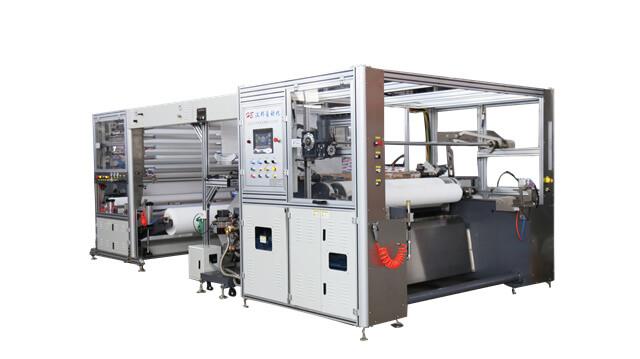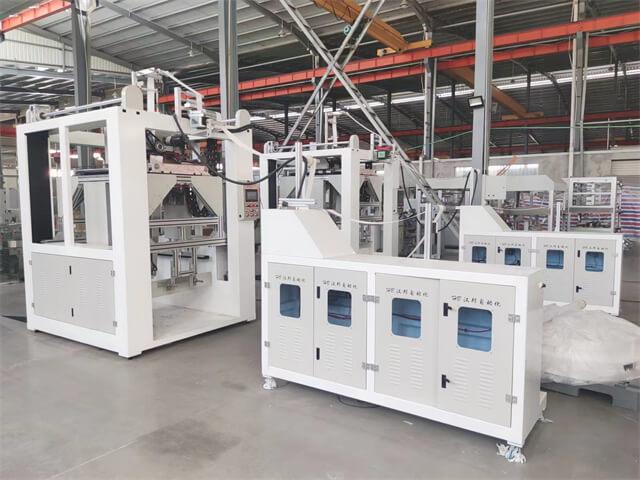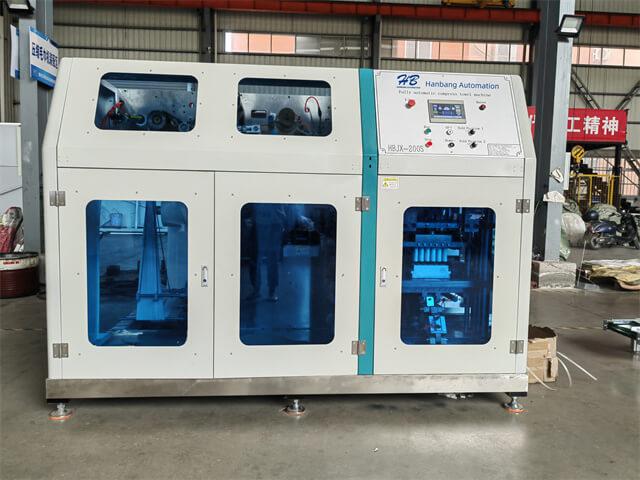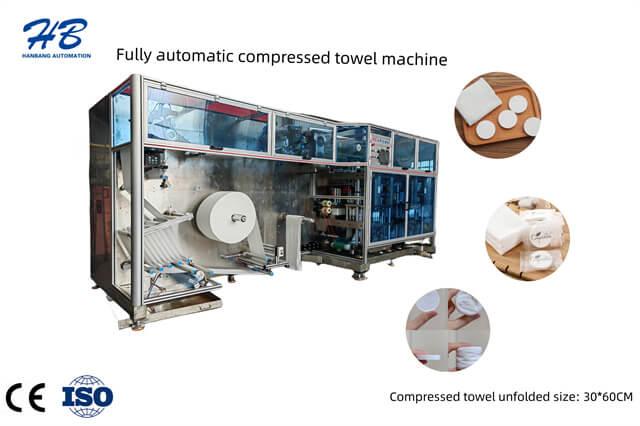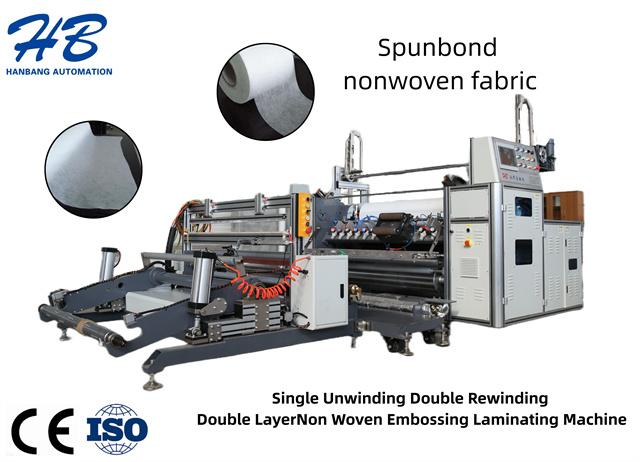Author:HB Nonwoven MachineryFROM:Compressed Towel Machine Manufacturer TIME:2024-01-02
Wide Applications of Nonwoven Fabric Machine
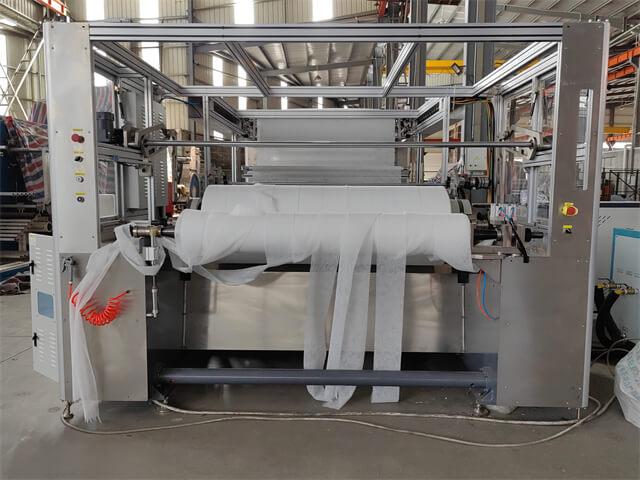
The nonwoven fabric industry has witnessed significant growth in recent years, thanks to the advancements in nonwoven fabric production machines. These machines have revolutionized the production process and expanded the applications of nonwoven fabrics in various industries. From the production of disposable hygiene products like diapers and sanitary napkins to industrial applications such as automotive interiors and filtration systems, nonwoven fabric machines play a crucial role in meeting the demands of different sectors.
Nonwoven fabric machines are extensively used in the production of hygiene products, including diapers and sanitary napkins. These machines enable the efficient production of soft, absorbent, and leak-proof fabrics that are essential for these products. With the increasing demand for disposable hygiene produc
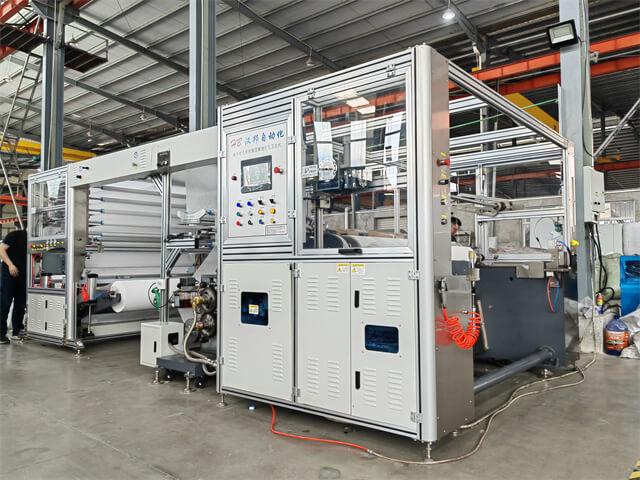
The medical industry relies heavily on nonwoven fabrics for various applications, such as surgical gowns, masks, and wound dressings. Nonwoven fabric machines enable the production of sterile, breathable, and durable fabrics that meet the stringent requirements of the medical sector. The versatility of nonwoven fabrics allows for their use in both single-use and reusable medical textiles.
Nonwoven geotextiles play a vital role in civil engineering and construction projects. These fabrics are used for erosion control, soil stabilization, drainage systems, and separation purposes. Nonwoven fabric machines produce geotextiles with high strength, tear resistance, and permeability, which are essential for their successful implementation in geotechnical applications.
Nonwoven fabrics have become integral components of filtration systems in various industries, such as automotive, healthcare, and manufacturing. Nonwoven fabric machines produce filter media with controlled pore size, high filtration efficiency, and good air permeability, making them ideal for capturing particles and maintaining clean environments in different processes.
The automotive industry utilizes nonwoven fabrics for interior applications like headliners, carpeting, and seat covers. Nonwoven fabric machines allow the production of lightweight, durable, and sound-absorbing materials that enhance the comfort and aesthetics of vehicle interiors. These fabrics also offer improved insulation properties, contributing to energy efficiency in automobiles.
Nonwoven fabrics are increasingly used for packaging purposes due to their strength, flexibility, and cost-effectiveness. Nonwoven fabric machines produce packagi
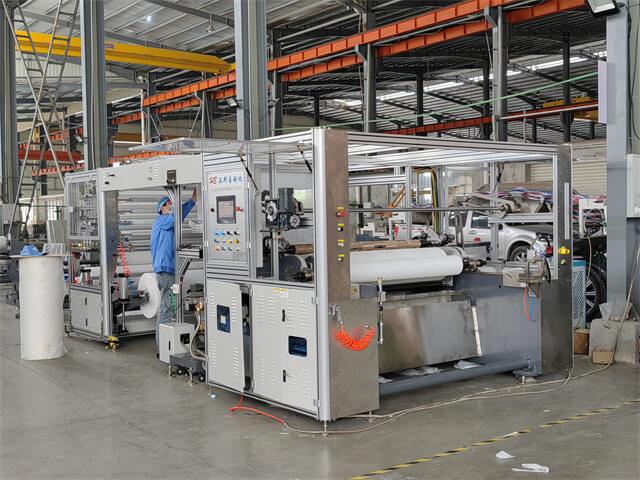
Nonwoven fabrics play a crucial role in modern agriculture practices. They are used for crop protection, weed control, and soil stabilization. Nonwoven fabric machines produce geotextiles and landscape fabrics that provide UV resistance, water permeability, and durability, ensuring the efficient growth of crops and preventing soil erosion.
The furniture and bedding industry benefit from nonwoven fabrics for various applications, including mattress covers, upholstery, and pillow fillings. Nonwoven fabric machines produce materials that offer breathability, comfort, and durability, enhancing the quality and longevity of furniture and bedding products.
Nonwoven fabric machines have revolutionized the textile industry by expanding the applications of nonwoven fabrics across various sectors. From hygiene products to medical textiles, filtration systems to automotive interiors, the versatility of nonwoven fabrics continues to grow. These machines enable the production of fabrics with specific properties required for each application, ensuring high performance, cost-effectiveness, and sustainability. As the demand for nonwoven fabrics continues to rise, the nonwoven fabric machine industry will play a crucial role in meeting these evolving needs.
